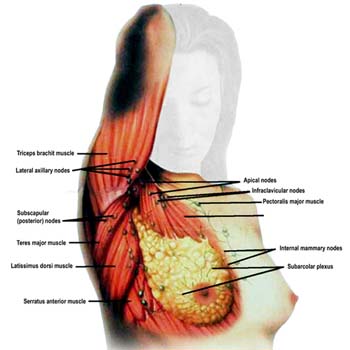Cancer risk for opposite breast is increased by BRCA
 U. S. researchers have found that breast cancer patients with the breast cancer gene mutations BRCA1 or BRCA2 are more likely to get cancer in the opposite breast.
U. S. researchers have found that breast cancer patients with the breast cancer gene mutations BRCA1 or BRCA2 are more likely to get cancer in the opposite breast.
Breast cancer patients who had a BRCA1 mutation had a 4.5-fold increased risk of getting breast cancer in the opposite breast, breast cancer epidemiologist Kathleen Malone of the Fred Hutchinson Cancer Research Center in Seattle said.
The study further found that breast cancer patients, who have a BRCA2 mutation, had a 3.4-fold increased risk of a subsequent cancer in the opposite breast.
Carriers of either BRCA1 or BRCA2, who were diagnosed with breast cancer before age 55 had an 18 percent cumulative probability of developing cancer in the opposite breast within 10 years.
Malone also noted that about 5 percent of breast cancer patients carry a BRCA mutation, but the younger a woman is at the time of her first breast cancer diagnosis, the more likely she is to have such a mutation. (With Inputs from Agencies)